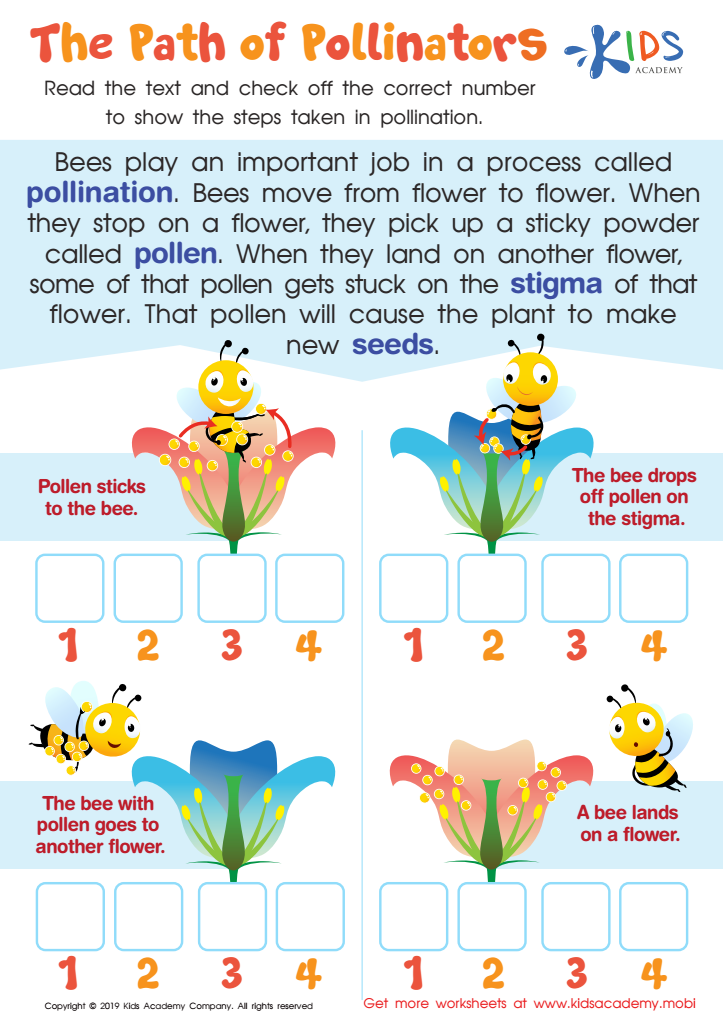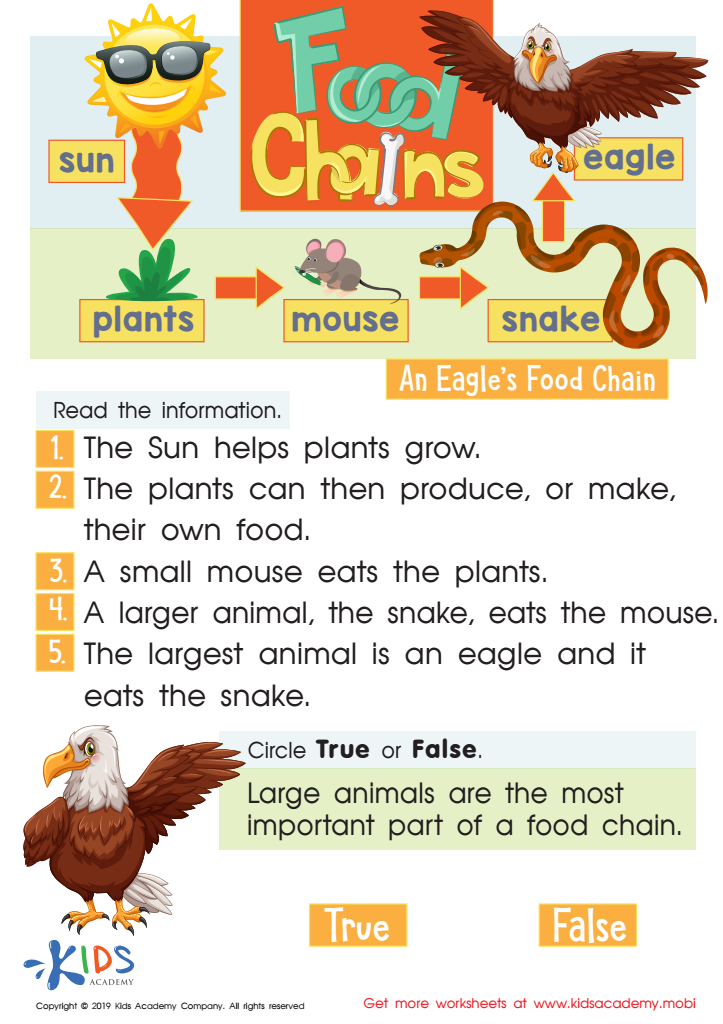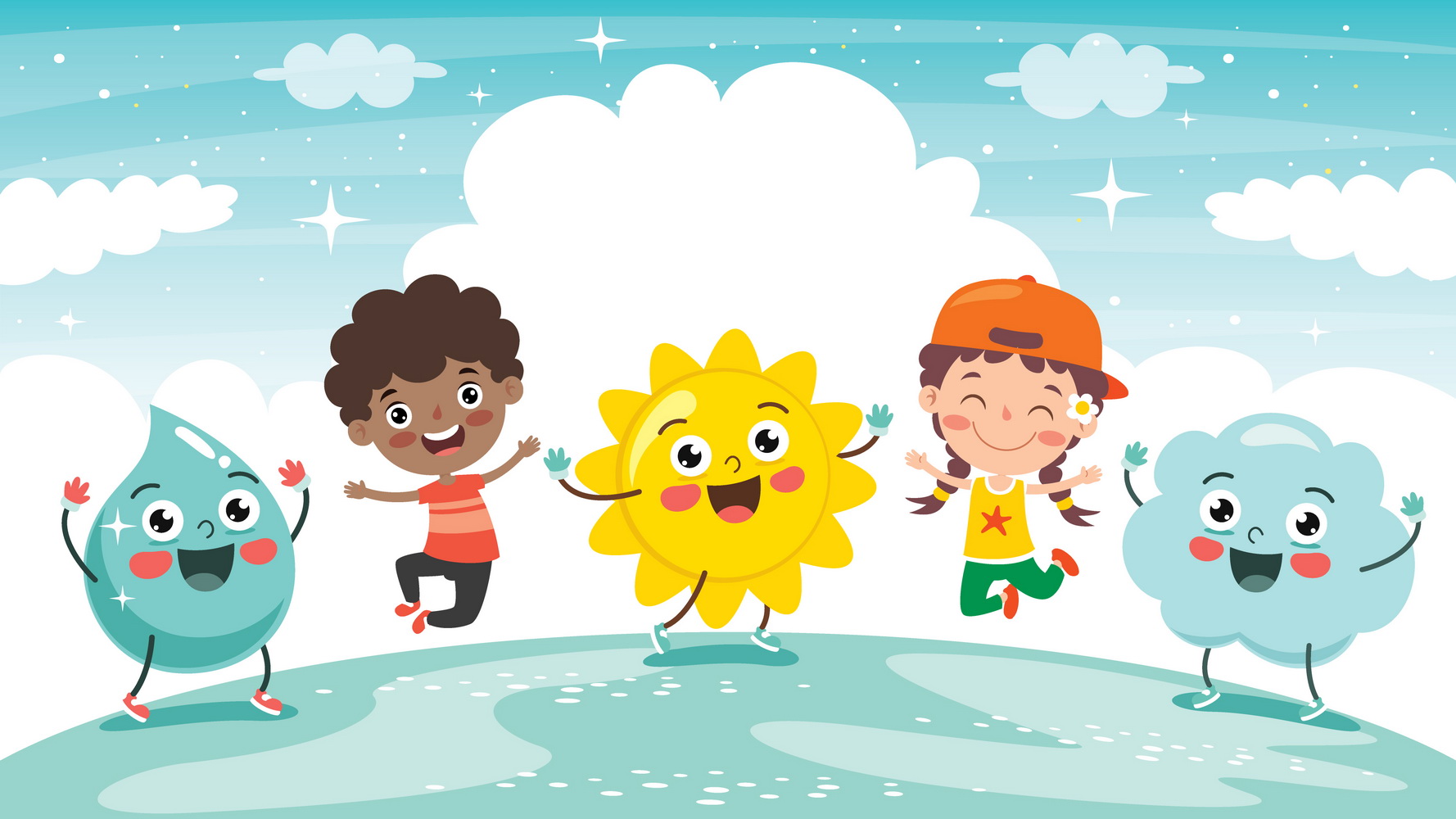Learning about ecosystems Normal Worksheets for Ages 4-9
3 filtered results
-
From - To
Welcome to our "Learning about Ecosystems" worksheets designed for children aged 4-9! These engaging resources help young learners explore the diversity of ecosystems, from forests to oceans. Each worksheet features fun illustrations and simple activities that promote understanding of habitats, plants, and animals, encouraging curiosity about the natural world. Ideal for both classroom and home learning, our worksheets foster critical thinking and teamwork skills as students complete group activities. Enhance your child's science education while inspiring a love for ecology and conservation. Discover the wonders of ecosystems today with our age-appropriate materials that make learning an exciting adventure!


Pollinator Positions Worksheet


The Path of Pollinators Worksheet


Food Chains Worksheet
Parents and teachers should care about teaching kids about ecosystems because understanding these natural systems is essential for fostering a sense of responsibility and stewardship towards our planet. At ages 4-9, children are naturally curious and eager to learn about the world around them. By introducing them to ecosystems, we help them appreciate the interconnectedness of plants, animals, and their environments.
Learning about ecosystems teaches children the importance of biodiversity and how every living thing plays a role in maintaining a healthy environment. This knowledge encourages them to think critically about their impact on nature and promotes eco-friendly habits from a young age. Activities like exploring local parks or observing nature can strengthen their observational skills and spark their imagination.
Additionally, discussing ecosystems can enhance other areas of learning, such as science and math, by incorporating hands-on activities and real-world connections. It also opens the door to discussions about sustainability, conservation, and climate change, empowering kids to be advocates for the Earth. Ultimately, nurturing an understanding of ecosystems in young learners cultivates a generation that cares about and takes action to protect our planet.
 Assign to My Students
Assign to My Students





















